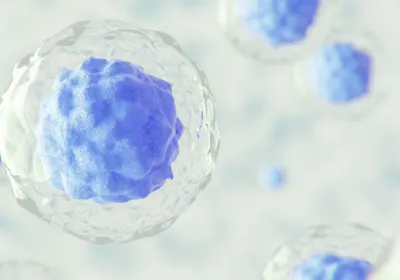ABOVE: An illustration of a macrophage (white) engulfing a cancer cell (red)
© ISTOCK.COM, MARCIN KLAPCZYNSKI
The advent of chimeric antigen receptor T cell technology has revolutionized the treatment of blood, or “liquid,” cancers. But solid tumors have largely resisted this type of immunotherapy. To overcome this obstacle, some researchers have started adding CARs to immune cells other than T cells.
On March 18, Carisma Therapeutics, a company founded by researchers at the University of Pennsylvania, announced that it had dosed its first human participant in a landmark Phase 1 clinical study assessing the safety of CAR macrophages. These CARs are modified versions of immune cells that are regularly recruited into tumors and harnessed by cancer cells to evade detection by the body’s immune system. Although macrophages have long been impervious to genetic tinkering, researchers at Carisma discovered a new type of viral vector that allowed them to engineer the ...






















